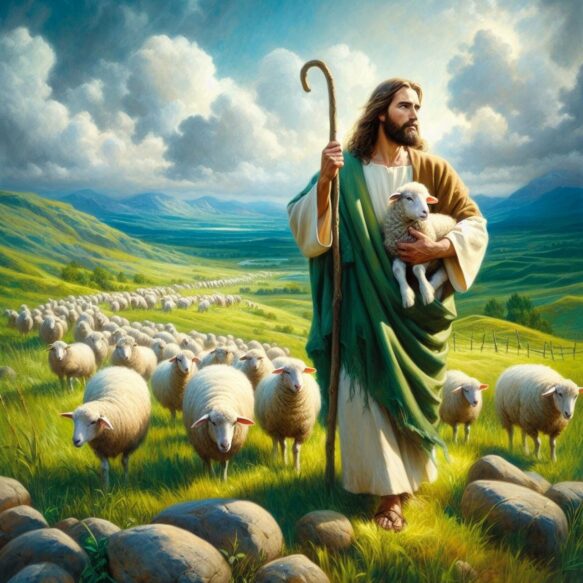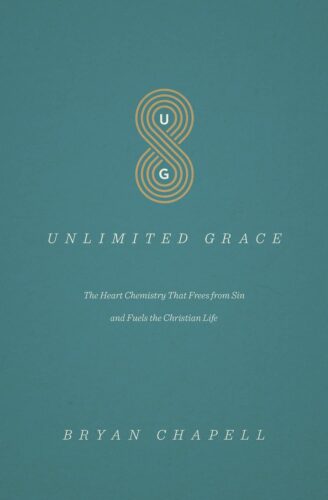Grace Vs Works – Again
Author: Bryan Chapell
Grace is one of the central tenants of Christianity and the Bible, both New and Old Testaments. Yet, many people seem to struggle with what God’s grace means. Is it a gift or a reward for certain actions? Is it merit based? If God’s grace is real, why does He ask us to obey His commandments when the route of instant forgiveness seems altogether easier and more appealing? How can a gracious God enact judgement, and where exactly does the concept of Hell come into all of this?
I came to Unlimited Grace as a year two C.S. Lewis Institute fellow. The C.S. Lewis fellowship is an intensive program focused on enhancing Christian discipleship. It involves Bible studies, readings, lectures, group work, a one-on-one spiritual mentor, and more. Year two continues what was started in year one, advancing the program. As such, I expected Unlimited Grace to be a more advanced theological work, but this book is more aligned to the needs of new believers who are seeking to understand the basics.
The basic, then, is this: we are saved by faith, not works. It’s an old adage, one that honestly could be covered effectively in a pamphlet. It’s simple, yet many new believers and churches fall into the “follow the rules, get a ticket to Heaven” MO. Grace, however, acknowledges that no matter how “good” our behavior is, we can never earn our own redemption. This is the point of Gensis chapter 1, honestly. We’re fallen. Cursed. Of course, we can’t work ourselves out of that curse with some simple behaviors. That, to me, seems like a no-brainer.
Of course, then you get to the second question. We’ve already got the free ticket into Heaven, why not party it up? The answer is in Romans: “What shall we say then? Shall we continue in sin, that grace may abound? By no means! How can we who died to sin still live in it? Do you not know that all of us who have been baptized into Christ Jesus were baptized into his death?” Romans 6:1-3. Author Bryan Chapell spends the most time on this question and the Biblical response.
Again, the answer is basic, although a little more nuanced than the “you can’t earn your way into Heaven” answer related to the first question of grace vs works. I like to think of it this way. If you have a good, loving parent, they will love their child even when that child is bad. The love never goes away. The relationship, however, can, if the child continues to an egregious degree in wrongdoing. You might still love your child if they were a serial killer, but you would still turn them in, right? God’s love is ever present; it does not change based on our own perceptions of fluctuating worthiness. However, our relationship with God does change. This is where Chapell, to me, gets a little confusing and a bit (forgive the term) namby-pamby.

Image by jose a telles telles from Pixabay
In Unlimited Grace Chapell proposes that if we truly love God, we want to obey His laws. The problem is that when we choose sin, as we often do, it’s because ultimately, we love sin more. Yes . . .to a degree. That is inherent as part of our corrupted makeup. Yet this “obey God ‘cause you love Him” thing seems a bit flimsy. Where does discipleship come into this as we are waiting for these grand, sweeping emotions to keep us on the straight and narrow?
And, of course, Chapell does address this, it just came off as a little weak to me, a little recursive. The book repeats itself, chapter by chapter, the logic forever circling what is, to my mind, a simple concept.
And, to throw a further wrench in the gears, does it even matter what our grand emotions are, why we obey God? I find it interesting that people take so much time, so many pages, to justify following God’s laws, to make them more palatable in a way, or explain away the sense that, sometimes, we just don’t want to do what is right. It is because we are fallen, and in my mind, it comes back to that same old simple concept. He is God. We obey His laws because He told us to. For example, a lot of people like to deconstruct the Eucharist (what does it mean, is it a symbol or the real presence, etc.) . . . but the commandment is not to understand, it is TO DO. That is part of the mystery of faith, and not everything needs to be over explained. Love and obedience do come hand-in-hand, but there are also repercussions to “the fear of God,” both of which are addressed, but more defensively than organically.
In the book’s last several chapters, Chapell wrestles more with ideas of punishment, specifically Hell, showing that forgiveness does not cancel out justice. You can be forgiven, you can (and should) accept that you can never “make things right,” and this is why Jesus had to come and sacrifice Himself on our behalf, but there are still repercussions. That’s a harder concept, and one I would have loved to deep dive into a little more, instead of staying in the Grace 101 camp.
As it was, I rated Unlimited Grace based on my expectations of something more substantive and, if you will, harder. As a beginner introduction, Chapell’s book is excellent, if repetitive, but for believers further along in their journey, or people who have already gotten the “grace over works” concept and are a little exhausted to have that horse beaten once again, there is nothing special or new here.
– Frances Carden
Follow my reviews on Twitter at: https://twitter.com/xombie_mistress
Follow my reviews on Facebook at: https://www.facebook.com/FrancesReviews
- Book Vs Movie: The Shining - April 6, 2020
- Thankful For Great Cozy Mysteries - December 13, 2019
- Cozy Mysteries for a Perfect Fall - October 20, 2019



